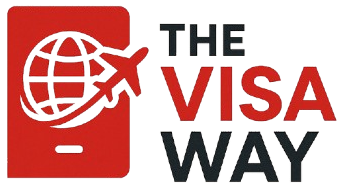Have a question
O-1A Visa
Eligibility Criteria for O-1A
To qualify for an O-1A visa, you must demonstrate extraordinary ability by sustained national or international acclaim and prove you are coming to the U.S. to continue work in your area of expertise.
You can establish this “extraordinary ability” by providing evidence of either:
Receiving a major, internationally recognized award (such as a Nobel Prize or Olympic Medal);
OR
Meeting at least three of the following eight criteria:
Receipt of nationally or internationally recognized prizes or awards for excellence in the field.
Membership in associations in the field that require outstanding achievements of their members, as judged by recognized national or international experts.
Published material in professional or major trade publications, newspapers, or other major media about the beneficiary and their work.
Original scientific, scholarly, or business-related contributions of major significance in the field.
Authorship of scholarly articles in professional journals or other major media.
A high salary or other high remuneration for services compared to others in the field.
Evidence of participation on a panel, or individually, as a judge of the work of others in the same or an allied field.
Evidence of employment in a critical or essential capacity for organizations and establishments that have a distinguished reputation.
If the above criteria do not readily apply to your occupation, comparable evidence may be submitted to establish eligibility.
Application Process
The O-1A visa petition must be filed by a U.S. employer, U.S. agent, or foreign employer through a U.S. agent. You cannot self-petition.
1. File the Petition with USCIS
The U.S. petitioner files Form I-129, Petition for a Nonimmigrant Worker, with U.S. Citizenship and Immigration Services (USCIS). The petition package must include:
Form I-129 and the O/P Supplement.
A copy of the written contract between the petitioner and the beneficiary (or a summary of the terms of the oral agreement).
A detailed itinerary of the events or activities in the U.S. with dates and locations.
A written advisory opinion from an appropriate consulting entity (e.g., a peer group, labor organization, or person(s) designated by the group with expertise in the field).
Evidence of extraordinary ability to meet the criteria listed above.
2. Visa Application (After Petition Approval)
Once USCIS approves the I-129 petition (Form I-797, Notice of Action), the beneficiary (the foreign national) can apply for the O-1A visa stamp at a U.S. embassy or consulate abroad. This involves:
Completing the online DS-160, Online Nonimmigrant Visa Application.
Paying the necessary visa application fees.
Attending a visa interview, presenting the required documents, including the approved Form I-797.
Key Features
| Feature | Details |
| Duration of Stay | Initially granted for up to three years. |
| Extensions | May be extended in one-year increments to continue or complete the event or activity. There is no statutory limit on the total time. |
| Dependents | Spouse and unmarried children under 21 are eligible for the O-3 nonimmigrant status. O-3 dependents may not work in the U.S. but may study. |
| Employer Specific | The visa is employer-specific. If you change employers, the new employer must file a new Form I-129 petition and have it approved. |
| Dual Intent | The O-1 visa is considered a “dual intent” visa, meaning an applicant can hold O-1 status while having an intention to seek lawful permanent residency (a green card) in the future. |
| Premium Processing | Form I-907, Request for Premium Processing Service, can be filed for an expedited 15-calendar-day processing time for the I-129 petition for an additional fee. |




